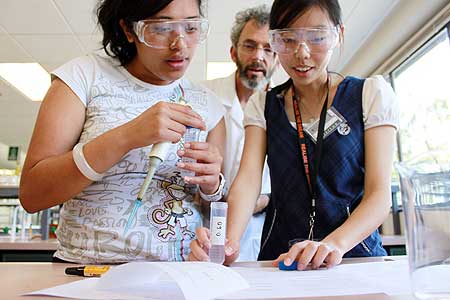- Study in AustraliaAustralian Universities/CollegesPrograms by faculty AusAustralian VisasLife in Australia
- Study In New ZealandNew Zealand UniversitiesPrograms by Faculty NZNew Zealand VisasLife in New Zealand
- Study in CanadaUniversities/Colleges in CANADAPrograms by faculty CanadaCanadian VisasLife in Canada
Choosing a Course
Choosing a course or subjects at school
As you work through NCEA Levels 1-3, you will need to make decisions about what courses or subjects to study.
At Level 1 (Year 11) you should take a broad range of courses that will lead on to more specialised subjects. In Years 12 and 13, start thinking about what areas you need to focus on for your future study or career.
Your Level 2 results are important, as these are often used as part of the selection process by universities, polytechnics and employers. You may need to take particular Level 3 standards as an entry requirement for some tertiary courses.
Compulsory subjects
Many schools require all students to study English, Mathematics and Science in Year 11, but then only English at Year 12, with no compulsory subjects at Year 13.
If you are planning to go to university, or even just want to keep it as an option, you will need to meet the university entrance requirements, which include a minimum number of literacy and numeracy credits.

Choosing subjects
To make decisions about what other courses or subjects to take, there are some key things to consider.
What do I enjoy and what am I good at?
The chances of doing well and achieving the standards you enter are better when you enjoy the subjects, or have a natural talent for them. These are subjects you should look at first when choosing your course.
Your school will provide a list of options. Many schools provide opportunities in Year 9 and/or Year 10 to sample a variety of subjects. Doing this gives you some experience of the subject, to see if it suits you.
If you are thinking of a subject, but don't know much about it, talk to a teacher.
What do I want do after school?
It is sensible to choose subjects that relate to what you want to do after you leave school. Many careers or qualifications have special requirements.
For example, if you want to be a motor mechanic it makes sense to consider one of the technology subjects like metalwork. Or, if a career in medicine appeals to you, you would be advised to do science subjects like chemistry and biology.
If you don't know what you want to do, the best path is to do as broad a range of subjects as possible, to keep your options open.
For more information, please contact one of our offices
Study in Australia | Study in the UK | Study in Malaysia | Study in Canada | Study in the USA | Study in New Zealand













